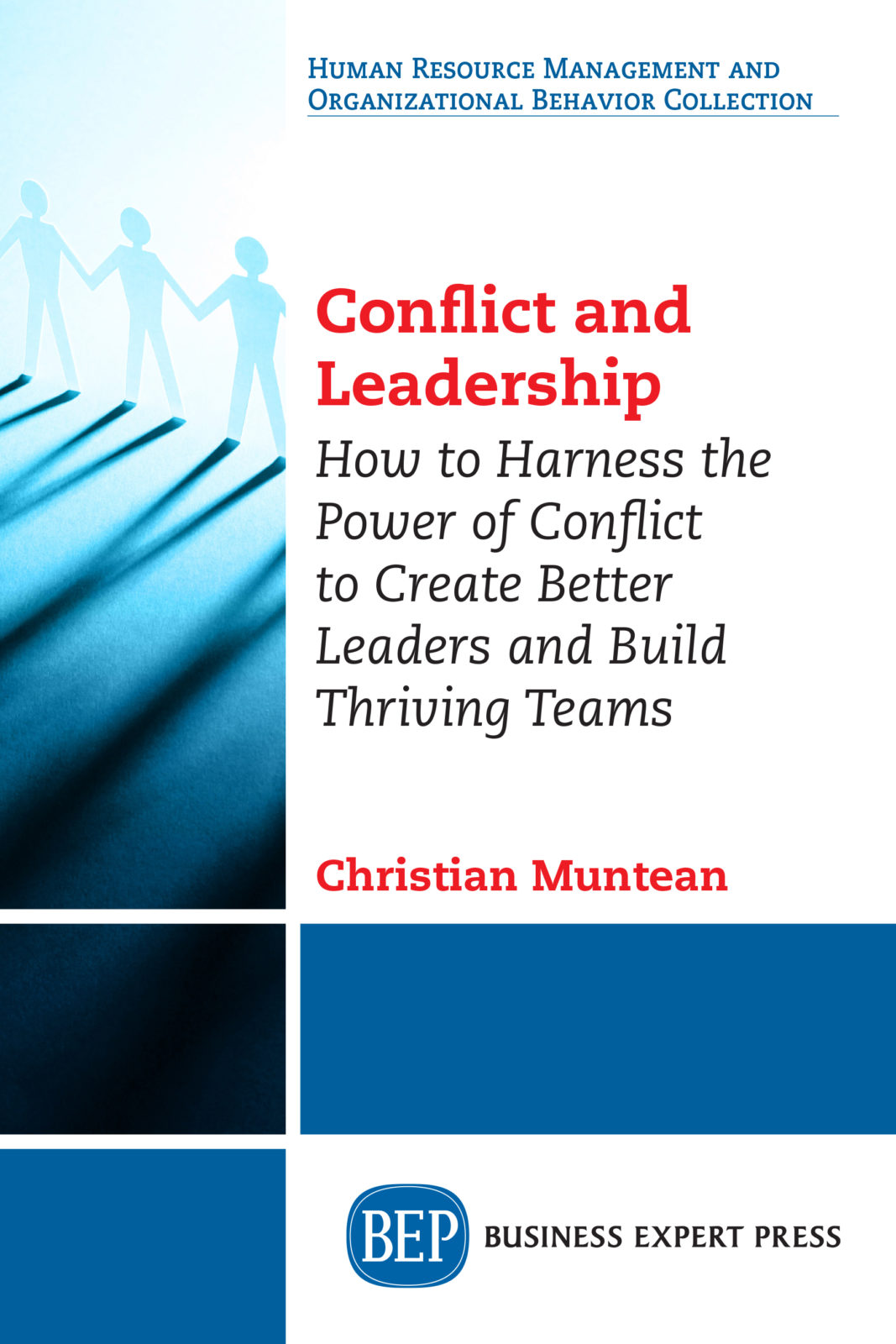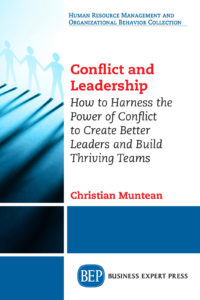Conflict & Leadership – What Leaders Need to Know

 I want to thank everyone for the great response from last week’s article. If you missed it, you can read it on my blog right here.
I want to thank everyone for the great response from last week’s article. If you missed it, you can read it on my blog right here.
Basically, I told my story about why I started to work with leaders and teams – particularly regarding how leaders relate to conflict. Also, I announced the release of my new book, Conflict and Leadership: How to Harness Conflict to Create Better Leaders and Build Thriving Teams.
This book has been a passion project of mine for the last three years.
I’m excited to be able to finally make it available. Even more exciting, I’m giving it away!
As a thank you to my readers and to help get the word out about the book – I’m giving it away, for free, through the end of March! Click this link or keep reading for more details.
Why This Book Is Important and Why You Need to Read It If You Are A Leader
I practice Brazilian Jiu Jitsu (BJJ). One of my more recent lessons in BJJ has been that if I get submitted – the error wasn’t what I did or didn’t do just prior to the submission.
No, my error was probably at least five moves earlier. When I let someone get better grips on me or get past my defense or take a stronger position.
Nearly all books on conflict are about what to do when the conflict occurs. They almost universally focus on the interpersonal dynamics of conflict.
Which is important. It’s a topic that is included in my book as well.
But more important, for leaders, is to create workplaces where unhealthy conflict is unlikely to occur. And to build an organization where conflicts don’t easily turn into a crisis. Essentially, to prevent or mitigate conflict five moves earlier.
That’s where this book is different and why you need to read it if you are a leader.
Nearly All Organizational Conflict Is A Leadership Issue
I’ve discovered that any conflict that is prolonged or reoccurs is, ultimately, a leadership issue.
Conflict occurs in one or more of four different areas: The personal perspectives, relationships, organizational structures or systems and organizational culture.
Over the years, I’ve noticed that when leaders pay attention to the way they perceive and relate to conflict and the quality of their relationships – they change they way conflict happens in their organizations.
Additionally, I’ve found that when conflict reoccurs or is prolonged, it is nearly always due to something about the structure, systems or culture of the organization.
These are components of an organization that only leaders can resolve.
Why Bother?
Anyone paying attention to a P&L knows that payroll is one of their highest costs, if not the very highest.
But one of the highest costs of payroll doesn’t show up on an expense report.
Did you know that studies show most leaders and supervisors report spending at least 20% of their time dealing with workplace conflicts?
What is 1/5th of their salary?
That’s just their time. Every other supervisor or manager in your organization is also, likely, investing that amount of time into conflict.
And that is just the leader’s time. It doesn’t include the staff, customers or vendors or anyone else.
What is 1/5th of your payroll costs?
Conflict, which most people find to be a miserable experience, also turns out to be one of the most controllable costs within any organization.
But you need to think five moves ahead.
It’s not even that all conflict should go away. It shouldn’t. Healthy organizations will have healthy, respectful disagreements.
But all those disagreements should generate ideas and decisions that are valuable.
There should be an ROI.
Are You Getting That ROI?
If not, I encourage you to think through the Four Opportunities of Conflict. Conflict may not be wanted but it does create an opportunity – for those who will take advantage of it:
Personal: What does a conflict teach you about how you can grow personally?
Relational: What does a conflict teach you about how a relationship needs to grow or be strengthened?
Structures & Systems: What does conflict teach you about how communication systems can be improved, how roles and responsibilities can be clarified or how decision- making processes can be strengthened?
Cultural: What does conflict teach you about your organization’s core values, beliefs, and behaviors? Is it possible that some of them are no longer serving you or your people well?
To read more about all of this, take advantage of this limited time offer! Sign up here to receive a free copy of Conflict and Leadership.
All I ask is a nominal fee to cover shipping and handling (or get the Kindle version) and that you consider writing an Amazon review to let others know what you think.
Take good care,
Christian
Categories
Get Christian’s Newest Book: Train to Lead

Download my free 10-page eBook:
How To Accomplish More Without Doing More:
Eight Proven Strategies To Change Your Life
Discover how to save eight hours during your workweek-even if you're too busy to even think about it. The resource every maxed out executive needs.